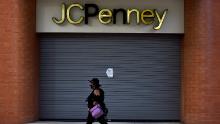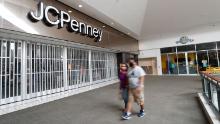Even bankrupt stocks soared in the latest market rally
Free trading leading to reckless bets?
“Since Schwab went to $0 commissions, the lowest priced stocks have been huge outperformers,” said analysts at Bespoke Investment Group in a report this week.
The Bespoke analysts pointed out that stocks with the lowest share prices — so-called penny stocks which include many of the companies that have filed for Chapter 11 — have substantially outperformed the market in the past few months.
“This looks like plausible evidence that smaller traders are playing at least some role in the performance of the market,” the Bespoke analysts added.
Data from Robintrack, a firm that follows holding patterns of traders using the popular investing app Robinhood appears to bear this out as well.
Short-term traders also seem to be betting that all the stimulus from the Federal Reserve and Congress will help boost the economy — as will hopes that more states and cities are getting back to business as normal. So riskier stocks, the argument goes, could rise even more substantially.
“Leadership has been driven by gains in stocks levered to the reopen and recovery, with hints of fear of missing out,” said Mark Hackett, chief of investment research at Nationwide, in a report.
“This has been highlighted by big gains in companies that have recently filed for bankruptcy protection and companies with no earnings,” Hackett added.
Trading for short-term pops is not the same thing as investing
Of course, this is extremely dangerous and reckless behavior on the part of investors.
For one, holders of bankrupt stocks are last in line behind bondholders and other creditors when it comes to getting paid back as part of any Chapter 11 reorganization.
Whats more, the shares of a bankrupt company are often wiped out entirely and new stock is issued.
And there’s no guarantee that a bankrupt company won’t run into more trouble down the road once it sheds its debt.
Some companies have gone bankrupt a second time, such as American Apparel, Fairway, Barneys and RadioShack. That has earned them the unfortunate nickname of Chapter 22 companies.
“The risk of insolvency has dropped significantly and investors do not seem worried about the near-term future. Surprisingly, that is also the case with bankrupt companies,” said Hussein Sayed, chief market strategist at FXTM, in a report.
“The Fed is now committed to keeping interest rates near zero until at least the end of 2022 and using all its tools to support the economy. This could translate into further speculative bets,” Sayed added.
Still, it’s also important to recognize the big difference between trading — trying to profit from a quick pop — and investing for the long haul.
The types of investors buying and selling shares of companies like Hertz and JCPenney are unlikely to be buy and hold types who could be nursing losses of up to 90% or more on bankrupt stocks.
“For distressed asset investors, this is like a new lease on life. But are these companies all of a sudden a viable business? No. Still, short-term traders can make money,” said Deepak Puri, chief investment officer for the Americas with Deutsche Bank Wealth Management.


